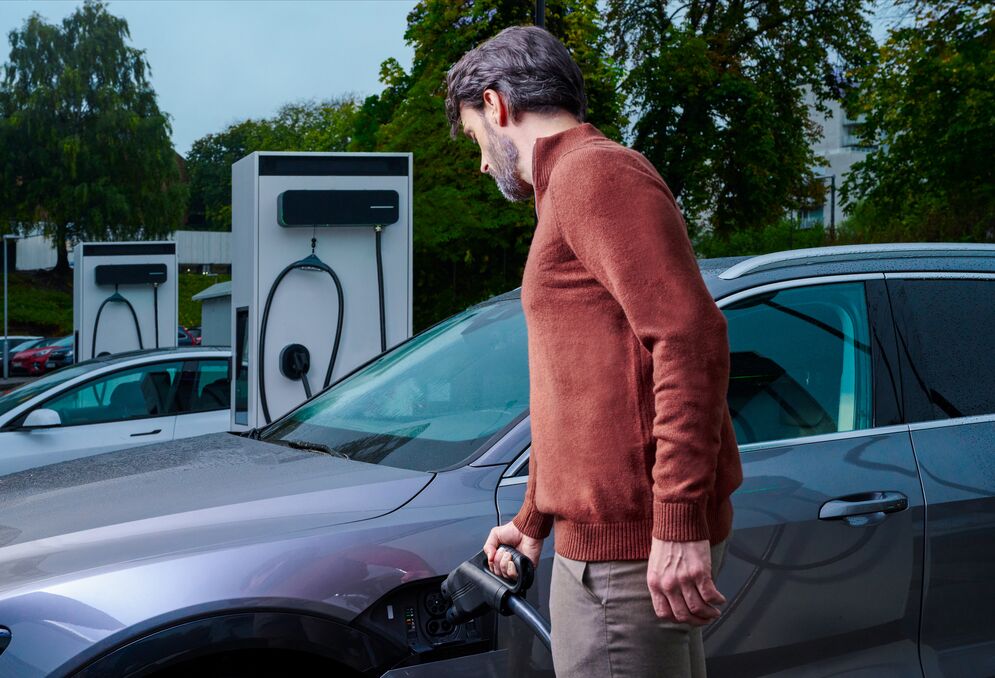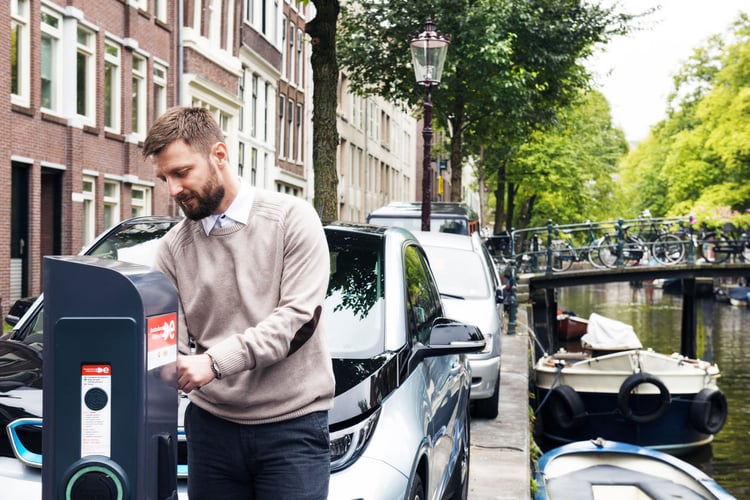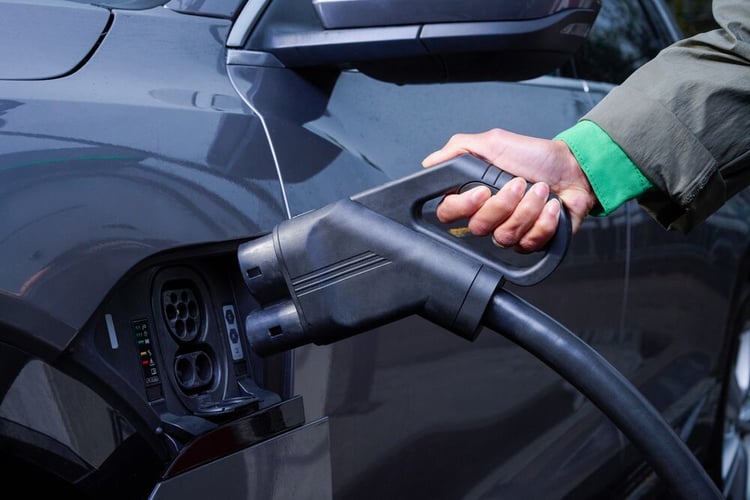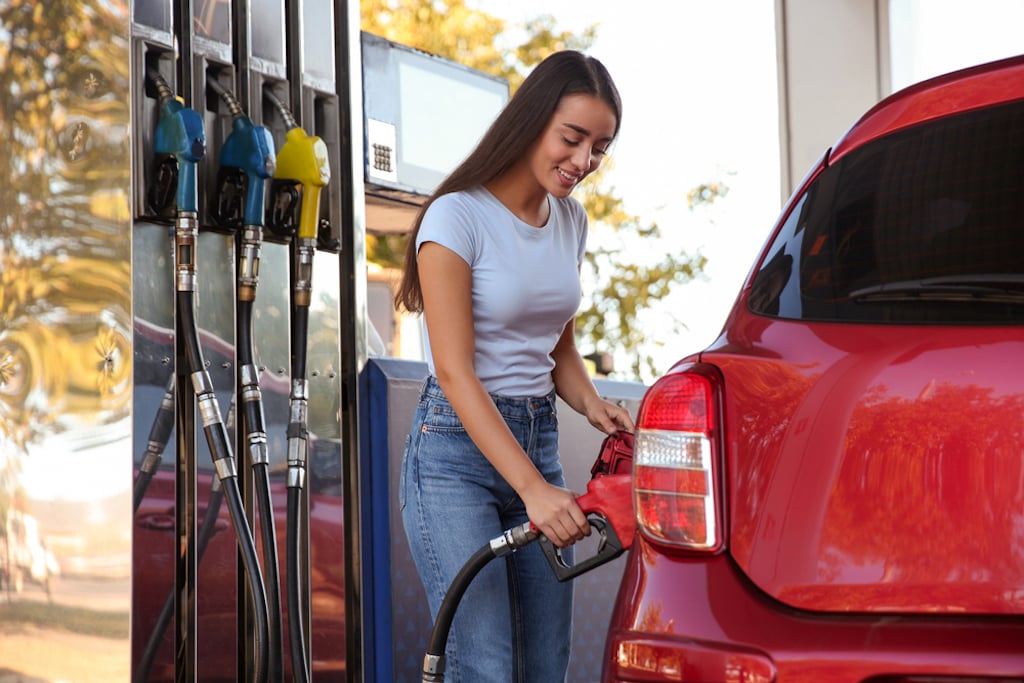
Last updated on October 27, 2023
How much an electric vehicle (EV) costs to charge depends on a range of factors, including where you charge, the type of charging station you use, the price of electricity, and what time you charge.
Still, in 2023 charging an EV is almost always cheaper than filling a car with petrol.
Petrol vs electric cars
|
Region |
Average yearly spending on: | |
| Petrol | EV charging | |
| UK 🇬🇧 | £1.225* | £690 - £934* |
|
*These estimated prices are for illustrative purposes only and represent the yearly average spending on either petrol or electricity, based on the latest average electricity prices per kWh available, per country/continent as of the date of writing/updating this article. The actual cost of charging an electric vehicle or refuelling an Internal combustion engine vehicle may vary depending on various factors. |
||
This article takes a closer look at the cost differences (and factors affecting those) between charging an electric car and filling a car with petrol. Read or full article, or jump down with one of the shortcuts below:
Potential EV drivers are uncertain about the costs
In the UK, the types of vehicles on our roads are changing. What began with Tesla’s rise as a niche electric vehicle manufacturer has grown into the beginning of a worldwide transition to electric mobility, with EV sales now making up more than 50 per cent of all new cars sold in Q1 2023. This rise has been driven by strong interest from drivers, favourable government regulations, and a rush to reduce the carbon footprints of businesses and consumers alike.
With all this momentum, what’s standing in the way of those who are considering an EV taking the plunge?
Simply put: it’s still uncertainties over price. According to our research, some of the main barriers for consumers on the fence are the price tag of EVs and how much they will cost to run, especially when compared to fuel alternatives.
So, is charging an EV cheaper than filling an internal combustion engine (ICE) car with petrol? More often than not, the answer is “yes,” however, the full picture is a bit more complex and depends on a range of factors which we’ll dive into below.

Is EV charging cheaper than Petrol?
The first thing to look at when determining whether an EV is cheaper to run than a petrol car is the price of fuel, in other words, that of electricity and petrol. These depend on a range of factors, including your location, electricity and fuel prices, and the type of EV charging.
On top of this, plenty of other things come into play, including fuel economy, government regulations, and the type of engine the petrol car has.
However, the answer is not “if”, but “how much” you will save with an EV compared to a petrol car. Let’s look at a few key factors to determine how much it costs to charge an EV or a petrol car.
The petrol perspective
Petrol prices
When it comes to petrol prices, there are a few factors that determine how much you’re going to pay at the station. The present fuel duty stands at a rate of 53p per litre for both petrol and diesel, while VAT at 20% is then charged on both the product price and the duty.
When the price of crude oil fluctuates—as it often does due to the law of supply and demand, global crises, and political factors—we see prices at the pump rise and fall. Since the beginning of this century, the price of petrol in the UK has experienced significant fluctuations.
According to research by the RAC foundation, the retail price for a litre of petrol & diesel is highly volatile and varied from a high of nearly £1.91 & £1.98 in June 2022 to a low of £1.43 & £1.44 in July 2023. However, at the time of writing this article, the price of fuel is on rise again, reaching figures around £1.50 per litre.

Type of engine
The type of engine plays a major role when determining fuelling costs and is something that many consumers take into account when deciding to purchase a new petrol car. Here’s a brief overview of the ICE market today:
-
Petrol engine
The majority of passenger vehicles are equipped with petrol-powered ICEs. These vehicles generally burn the most fuel per mile, emit the most CO2, and cost the most to run, although differences between diesel and hybrids are becoming negligible as all have become more efficient over the years. -
Diesel engine.
Compared to their petrol counterparts, diesel engines consume 10-20 per cent less fuel thanks to more efficient engine operation. These efficiencies are due to burning a heavier, more energy-dense fuel which is more efficient but also costs less than petrol. However, diesel also emits more pollutants than petrol and is subject to higher taxes.
-
Hybrid engines
Powered by an ICE and an electric motor, hybrid vehicles have even lower fuel consumption because the battery supplements petrol driving to help maximise fuel efficiency. Running costs for hybrid vehicles depend on whether it’s a plug-in or petrol-fuelled hybrid, but overall, they’re often cheaper than petrol or diesel cars.
Size of vehicle
Another determining factor to consider is the size of the vehicle. The heavier a vehicle is, the more energy is needed to move it. Heavier vehicles have greater rolling resistance, which in turn, contributes to increased fuel consumption. As a standard, lighter vehicles tend to be more fuel-efficient and better for the environment as well as more cost-efficient to run. The general rule of thumb is that the bigger the car, the more expensive it will be to run. However, weight factors impact cars with ICEs more than hybrids and electric vehicles, which can recover a portion of the energy lost.

What is Fuel economy?
A vehicle's fuel economy is essentially how far it can drive on a specific amount of fuel. In the US and the UK, this is usually measured in miles per gallon (mpg), while in the rest of Europe and the world, it’s typically measured in litres per 100 kilometres.
When calculating how much it costs to fill up a car with fuel, this is an essential number to know. Loosely speaking, anything under 8 litres per 60miles is pretty good, between 8 litres and 12 litres is average, and anything over 12 litres is considered a relatively low fuel efficiency. For instance, at the low end of the spectrum, a Honda Civic—considered one of the most fuel-efficient, petrol-only cars by the U.S. EPA—has a fuel efficiency of around 7 litres per 60 miles.
Government regulation
Another consideration when it comes to fuel economy is the government levies and taxes on vehicles with low fuel economy ratings, high levels of pollution, or heavier vehicles in general.
In the UK and many other countries, how much road tax you pay depends on the weight of your car as well as how much pollution it emits and currently many electric cars qualify for free road tax.
These regulations are set to increase as many governments move to ban vehicles that emit carbon or other pollutants. On the other hand, here’s the list of incentives the UK government offers when purchasing an EV.

The EV perspective
How much does it cost to charge an electric car?
When you’re driving a petrol or a diesel vehicle, calculating fuel costs is relatively easy. You know how much you’re used to paying per litre, and you know how much it will cost on average to fill up your tank.
When it comes to the cost of charging an electric vehicle, it is a little more complicated as there are different levels of charging, which all come with different costs. These depend on several factors, including where you charge, the price of electricity, and at what time you charge.
Home charging
Charging at home – either with the cable that came with your EV or a dedicated charging station – will let you take advantage of the lowest price per kilowatt-hour (kWh)—the electric equivalent of a litre of fuel.
As you use your residential energy supplier, there is no “middle-man” charging extra for the service, and you’ll simply pay the price you pay for electricity at your home.
However, home charging can be slower than public charging stations as the power output of a home is often lower. Check out our detailed article for everything you need to know about charging an EV at home, including charging times at different kWh outputs, and the different charging station options available.
Energy prices and EV charging
In the UK, the average price per kWh is around £0.27. That said, this cost varies depending on where you are in both regions. For example, the cost in 2022 per kWh in northern Wales was 32p while north England was 28p.
How does this translate when charging an EV? Well, if you're looking to fully charge a Nissan Leaf with a 62 kWh battery in UK, you'll pay around £16 with a maximum range of 225 miles.
However, if you’re looking to charge a Tesla Model X with its larger, 100 kWh battery, it will cost closer to £27 with a range of up to 390 miles.
Fuel economy for electric vehicles
An electric vehicle’s “fuel efficiency” is based on the number of kilometres that the vehicle does on a single kilowatt-hour (kWh).
As an average small electric vehicle can travel 4 miles per kWh, if you typically drive your car (1,000 miles) a month, then you’ll need at least 250 kWh to charge it properly.

Public charging
Public charging is more expensive than charging an EV at home as the location sets the baseline cost of energy, and the charge point operator often adds a premium.
How much public charging costs vary on a range of factors. The tariff is based on the location you charge at, the network you use (and any roaming fees for using other networks), the time you charge, the number of kWh you consume, as well as a potential membership fee the supplier may decide to charge you.
Generally speaking, however, public charging will always be more expensive than charging at home.
Rapid charging
Rapid charging, also known as level 3 charging or DC charging, is capable of charging a vehicle within minutes instead of hours. Rapid chargers are significantly quicker than regular AC charging stations, taking between 15 and 45 minutes to charge most passenger electric vehicles up to 80 per cent—making it quick and easy to charge on the go.

Rapid and ultra rapid charging is, however, the most expensive public charging options and can double (or in some cases even triple) the cost per kWh. With rapid charging, you’re paying for the convenience of charging your vehicle quickly – and the investment by the charge point operator. The price difference, however, depends on the location at which you charge and whether the charging station bills by the minute or by kWh.
The price of rapid charging is more comparable to the price of filling up with petrol, however, it’s not usually an everyday experience for most drivers. Instead, rapid charging is reserved for quick top-ups on long trips, while cheaper home or AC public charging is used for day-to-day charging.
Electric cars vs petrol cars
With all these variables, it can be hard to get an accurate idea of how much charging an EV costs versus filling up a car with petrol. That said, we can look at average numbers to get an idea.
In the UK, the average annual cost to fuel a petrol car is £1,225 and for a diesel that number sits at around £1,572 a year.
In comparison, EV's tend to be significantly cheaper to run than petrol cars. Small-city sized EV cars such as the VW E-Up cost around £690 to £760 over a year. For medium and larger EV cars such as the Nissan Leaf, the annual cost to run is around £694 to £900. For SUVs such as the Audi e-tron, the annual cost can range from £715 to £934.
*Disclaimer: Energy prices fluctuate greatly and may be higher due to the current energy crisis.
Learn more about EV charging
Besides comparing charging costs compared to the cost of fuel, there are many other questions people have about driving an electric car. For example, what is the average range of an electric car today? What is the difference between AC and DC charging, and how does it work? Where can I charge my car, and how long will it take me? Have a look at our in-depth beginner’s charging guide to answer all of these questions and more.
Related articles

7 FAQs about electric car charging
Only a few years ago, electric mobility seemed like a futuristic idea or a hypothetical concept. Nowadays, electric...

Electric car charging cables and plugs explained [2023 update]
Last updated on December 8th, 2023 Charging an electric vehicle (EV) is not a one-size-fits-all endeavor. Depending on...

Where to charge an electric car?
Today, nearly half of all prospective new car buyers are thinking of going electric. Lower prices, wider model variety,...

